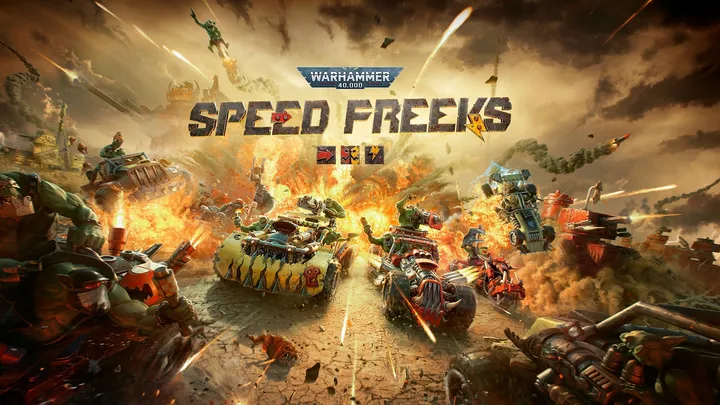Among Us is not a game of reflexes or strategy in the traditional sense; it is a masterclass in social deduction, psychological manipulation, and observation. To the casual player, it is a chaotic game of pointing fingers and hoping for the best. To the expert, it is a delicate dance of deception and truth, where every movement, every word, and every silence is a potential clue. Winning in Among Us is less about being lucky and more about being meticulously prepared, observant, and adaptable. This comprehensive guide is a deep dive into the advanced tactics and mindset required to transcend the basics and dominate the game, whether you are a Crewmate trying to root out the Impostor or a cunning Impostor trying to sow discord. We will move beyond the simple advice of "do tasks" or "don't get caught" and delve into the intricate art of reading people, creating an alibi, and manipulating the narrative to secure victory. This is your blueprint for transforming from a mere participant into a dominant force on the Skeld, Polus, or Mira HQ.

The Core Philosophy: The Psychological Mindset
Before you can even begin to play, you must adopt a different mindset. Among Us is a game played in the mind.
The first principle is to treat every player as a potential threat and a potential ally. This duality is key. A Crewmate must trust cautiously, building alliances based on observed behavior. An Impostor must exploit this need for trust, creating false bonds and betraying them at the most opportune moment. Never assume anyone is "good" or "bad" without concrete evidence.
Secondly, you must master the art of observation and deduction. The game is full of tells. An expert player doesn't just look for a body; they watch how people move. Do they stand still in front of a task? Do they fake a common vent route? Did they leave a room suspiciously quickly? Every action, however small, leaves a psychological footprint that can be used to build a case.
Finally, you must control the narrative. Whether you are a Crewmate or an Impostor, your words are your most powerful weapon. An expert player knows how to frame a conversation, how to shift suspicion, and how to create a plausible story that sounds more convincing than the truth. They do not just react to accusations; they proactively shape the discussion to their advantage.
Part 1: Playing as a Crewmate - The Detective’s Mindset
As a Crewmate, your role is to be a vigilant detective. Your life depends on your ability to find inconsistencies and build a case against the Impostor.
1. The Task-Completion Strategy: Your primary objective is to complete tasks. This is not just a way to win the game; it is a way to prove your innocence.
- Know Your Tasks: An expert Crewmate memorizes the location of all common tasks (e.g., card swipe, wiring) and can immediately spot someone faking them.
- Group Up, But Be Cautious: Working in pairs or a group provides a layer of protection and can help you create a trusted alibi. However, be aware that you are also more vulnerable to a double-kill or a well-placed trap by a team of Impostors.
- Observe While Doing Tasks: Do not tunnel vision on your tasks. Use the time to watch the movements of others. Who enters the room with you? Who leaves? Who stands in place without the task bar moving?
2. The Art of the Callout: When you find a body or see something suspicious, your callout is critical.
- Be Specific and Clear: Do not just say "Red is sus." Say, "I saw Red fake the MedBay scan. I was with Green." Provide a clear, undeniable piece of information that can be verified.
- Location is Key: Always state the location of the body or the suspicious activity. "Body in Electrical" is better than just "Body found."
- Avoid Vague Accusations: If you don't have a clear piece of evidence, do not make a strong accusation. Instead, ask questions. "Where was everyone when the lights went out?" This encourages others to provide information and can reveal lies.
3. The Alibi and Observation: An expert Crewmate constantly builds an alibi without even thinking about it. They know where they've been, who they've been with, and what they've been doing.
- The "Visual Task" Check: Use the MedBay scan or the garbage chute to provide a visual proof of your innocence. This is a powerful piece of evidence that is hard for an Impostor to fake.
- Track Others: An expert Crewmate mentally tracks the movements of other players. They can say, "I saw Blue in Admin, then they went to Security. When the body was reported, they were in the Hallway." This demonstrates that you are paying attention and can help piece together a timeline.
Part 2: Playing as an Impostor - The Deceiver's Mindset
As an Impostor, your role is to be a master of deception and misdirection. Your goal is to kill without being seen and to create enough doubt to escape suspicion.
1. The Art of the Kill: The kill is a single action, but the setup and the aftermath are a complex ballet of deception.
- Timing is Everything: Do not kill in high-traffic areas. Do not kill when you are near a vent that someone can see you enter or exit. Wait for the perfect opportunity: when someone is alone, when lights are out, or when a group is distracted.
- The "Vent Trick": Vents are your secret weapon. Use them to move around the map quickly and to create a plausible alibi. A master Impostor will kill in one room, vent to another, and then "report" the body in the new room, making it look like they just found it.
- Don't Be Greedy: Do not try to kill every player. A good Impostor kills a few key players and then focuses on creating a narrative that shifts suspicion to others.
2. The Alibi and Deception: A master Impostor is always building a fake alibi.
- Fake Tasks: Do not just stand in front of a task. Go through the motions. Stop, pretend to press buttons, and move on.
- Master the Common Tasks: Know the exact locations and animations of all common tasks. This will prevent a savvy Crewmate from immediately spotting your lies.
- The "Stack Kill": A stack kill is when two Impostors kill a Crewmate in a group of people. This makes it impossible for the Crewmates to know who the killer was, as everyone was "in a stack."
3. The Art of the Emergency Meeting: The meeting is your stage. Your words are your tools.
- The Self-Report: The expert Impostor is not afraid to self-report a body. This shows confidence and can immediately shift suspicion away from them. When you self-report, act shocked and point out who you saw near the body.
- Blame Shifting: When someone accuses you, do not get angry or defensive. Calmly and rationally explain your movements. A master Impostor will also shift the blame to others with questions like, "Where was Black? I haven't seen them all game."
- Creating a Narrative: If you are with someone and you see an opportunity to kill, be patient. Wait for the other person to leave, kill, and then immediately say in the meeting, "I was with Red, they can vouch for me." This creates a plausible story that makes it hard for others to argue with.

Part 3: Advanced Strategies and Psychological Warfare
The game's highest levels are played in the mind. The expert knows how to manipulate the psychological landscape to their advantage.
1. The "Clean" Kill: A "clean" kill is one where the Impostor is not seen. The expert Impostor takes this one step further. They not only kill without being seen but also create a situation that makes it seem like someone else is the Impostor. For instance, they might kill someone near a vent that an innocent person just exited, knowing that the innocent person will be the first suspect.
2. The "Buddy System" Trap: Crewmates often try to use the buddy system. A master Impostor uses this against them. They will team up with a Crewmate, build their trust, and then kill their buddy when the opportunity arises, leaving the other Crewmate to be the primary suspect.
3. Sabotage as a Tool: Sabotage is not just for winning; it is for creating chaos.
- Lights: Sabotaging the lights is the most common and effective sabotage. It creates opportunities for a kill and also creates a perfect moment for an Impostor to vent and move to a different part of the map.
- O2 and Reactor: These saboages are a countdown to a Crewmate win. They are used to force the Crewmates into a central location, making them vulnerable to a well-timed kill. An expert Impostor will use these to force Crewmates away from a body they have just killed.
In conclusion, Among Us is a game where the mind is the ultimate weapon. It is a game of skill, but not the kind of skill that comes from a high-score leaderboard. It is the skill of observation, deception, and the ability to think several steps ahead of your opponents. By embracing the mindset of the expert, you can turn the chaotic world of Among Us into your own personal stage, where every game is a new opportunity to outwit and outplay your opponents.

















